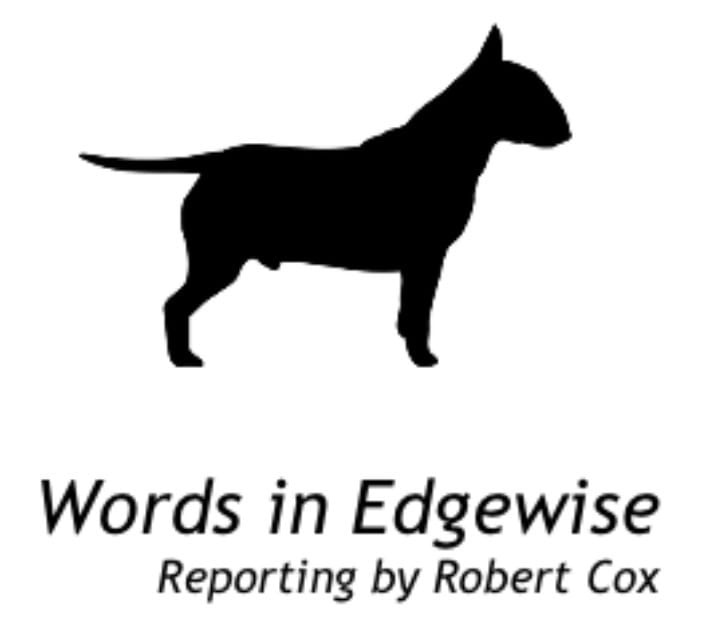What ChatGPT, Bing, Bard, Dall-E, and other AI means for Talk of the Sound Readers
It’s all good!

NEW ROCHELLE, NY (May 19, 2023) — After several weeks of constant travel through the Midwest and in the Mid-Atlantic region in April and May, I had a ton of press releases and other material jammed into my inbox upon my return. Dreading catching up on this material, I figured this might be a good opportunity to see if any of the new AI platforms might help me work faster to clear the backlog.
I dove into ChatGPT, where GPT stands for Generative Pre-trained Transformers (as if that helps to explain what ChatGPT does). After a week, cranking out over 100 articles, I found myself enamored with AI.
Words in Edgewise is a reader-supported publication. To receive new posts and support my work, consider becoming a free or paid subscriber.
The speed of the growth in capability is astonishing; over the last 60 days, there were many major developments: OpenAI launched a ChatGPT iPhone app with a speech interface, Google launched Bard, its ChatGPT competitor, ChatGPT went from version 3.5 to a paid version of version 4.0, and Microsoft Bing, which owns a large share of OpenAI integrated ChatGPT 4.0 into their search engine for free, as well as DALL-E, an AI image-generator.
ChatGPT was released to the public in November 2022. That was version 3.0. In March 2023, version 3.5 was released along with a paid upgrade to version 4.0
To explain the massive growth in capability for ChatGPT, OpenAI uses the term parameters as a measurement.
GPT-1 = 117 million parameters
GPT-2 = 1.5 billion,
GPT-3 = 175 billion parameters
GPT 4 = trillions of parameters
GPT 5 = who knows?
AI is now being integrated into all sorts of apps. For example, I use the Later App to post square images with headlines to social media, that app now has a caption-generator using AI. Pretty much every app or online service will soon have AI integration.
This article is not about how to use ChatGPT or other AI platforms or the moral implications or dystopian visions of a world purged of humans by SkyNet.
My interest is solely whether I can use AI to better inform my readers.
The answer is a resounding yes, with one big caution: services like ChatGPT, Bing, and Bard and others cannot be trusted. Or put another way, garbage-in/garbage out.
It all comes down to the request I make when asking ChatGPT to do something like help me by re-writing a press release into a brief article. It did OK when I accessed ChatGPT 3.5 directly via a web browser because that service is limited to data going back to 2021, and it did not pull data from the Internet.
Bing, with ChatGPT 4.0, does pull information from the web, which can lead to all sorts of trouble in sourcing the data. It is often not clear where the information is coming from, which can result in an article that is confusing and inaccurate. Worse, when I used Bing, it added quotations attributed to articles where none existed in my source document. When I asked Bing about this, it replied that it was fabricating quotes based on what it thought a person might say. It also added “color” to articles, little bits of interesting information, that likewise was made up. ChatGPT said it was trying to be helpful. Making stuff up is the opposite of helpful.
This happened a few times before I realized what it was doing. I got calls from New Rochelle and Pelham complaining about three articles. I had to fix them almost entirely. Lesson learned.
For example, it added fake quotes and details to this article (before publication) which I had it remove: Opossum Family Rescued From Electric Car Engine in Long Island


Initially, I would ask ChatGPT 3.5 to write an article based on text, then copy and paste a press release. This worked fine because ChatGPT 3.5 was unable to harvest information from the web and create its own “more interesting” version of reality. ChatGPT 4 within Bing can do that, hence the errors.
AI can have hallucinations. Read about them here.
The solution, as I learned the hard way, is to construct better requests.
Rather than asking ChatGPT, “write an article based on the following text” I might try this:
Write a headline and news article in New York Times style based on only the following text, do not make up quotes or embellish the details, include a dateline in the format: CITY, STATE (Month Day, Year) —
The resulting draft articles were much better, close to publishing quality. With a fact-check and a few minor edits, an article could be completed in the fraction of the time. Here are a few examples of articles based on press releases:
New Rochelle Police Arrest Suspect in Road Rage Incident Involving Handgun
NYS Courts Offer Internship Opportunities for High School and College Students
Mamaroneck Couple Honored by UJA Westchester for Their Philanthropy

After about 50 articles, I decided to try data tables (ie, spreadsheets). Each month, the Westchester County Clerk’s Office sends me a spreadsheet of all real estate transactions in the county. I sorted the spreadsheet by municipality and pasted Rye, Pelham, New Rochelle into Bing/ChatGPT4. The articles were astonishing because it not only wrote paragraphs describing the data (hugely time-consuming for a human) but it added links to relevant listings from Zillow and Realtor.com. Only after publication did I discover that the data was not what I added but from data on local assessor web pages, and it was getting the dollar figures wrong and some listings were not part of the county data set at all.
I thought hard about that and wrote new instructions that resulted in accurate but less interesting articles (no links to Zillow or Realtor.com or assessors). Here are two examples:
Rye Town Home Sales Report: April 2023
New Rochelle Real Estate Market Heats Up in April
Emboldened, I tried an article based on crime data from Rye, NY. Here I ran into another issue, that ChatGPT can only accept 1,024 characters at a time. I had to write instructions telling it to let me paste in several sections of data, which it allowed. The resulting article was excellent, especially as my trying to read pages of crime data and neatly summarize it would be extremely difficult and, for practical purposes, impossible given the time involved.

Rye Police Department Releases Weekly Bulletin Detailing Incidents May 11-18
One of my favorite uses of AI is having it write an article based on public meeting agendas and minutes. I have attempted this manually in the past and gave up. I even hired people in India to do the work. It was very tedious and difficult; such documents can be over 100 pages long. I tried anyway because I believe many readers are interested in a good summary of council meetings or school board meetings.
ChatGPT did a fantastic job with agenda and minutes. It only struggled with the length of the documents, so there was a good deal of copy and paste. It was worth the effort. One reader actually stopped me in the street to ask me about an agenda item which had never happened before. Here are a few examples:
Mamaroneck Board of Trustees to Hold Regular Meeting on May 22
MINUTES: New Rochelle City Council Meeting 5/9/23
New Rochelle City Council to Vote on Infrastructure Improvements and Youth Program
New Rochelle City Council Holds Regular Legislative Meeting May 16, 2023
ChatGPT can write articles based on hyperlinks. This seemed like a good workaround, to eliminate the need to copy and paste text on a web page and simply copy and paste a URL. The problem I found is that ChatGPT can overshoot the one URL and add text based on many URLs, and without necessarily indicating all of them (or any of them).
For a recent story on an arrest by state police of a man charged for robbing 3 tractor-trailers, there was no image to go with the article. I asked Bing/DALL-E to create an image of 3 tractor-trailers. It created 4 versions and I picked this one:

New Rochelle Man Arrested State Policy for $250,000 Grand Larceny
For an article on school election results, I asked for an image with a teacher, apples, and pencils:

Results from Sound Shore Area School Elections
Sometimes information comes in a bulletin, often in a PDF, like a school budget bulletin or a DEC brownfield site bulletin. Bing/ChatGPT did very well with this content.
Port Chester Residents Can Weigh In on 29-45 North Main Street Brownfield Cleanup Plan



Mamaroneck School District Presents 2023-2024 Recommended Budget and Four Propositions
I even tried a few “best of” lists based on reviews on Yelp and Trip Advisor:
Guide to the Best Coffee Shops in New Rochelle
New Rochelle Restaurants Get Rave Reviews on Trip Advisor
Ultimately, there is no free lunch. ChatGPT and Bing and Bard and whatever else need to be constrained by careful instructions, the results need to be carefully fact-checked and their draft still needs editing. At least, for now.
The capabilities of AI are moving so fast that I fully expect whatever I want these services to do they will do, perfectly, soon, so that all of my work that amounts to analyzing then summarizing text and data will be done using AI. Even better, the ability to automate the input and output is already happening. It means, if I get a press release from a local police department about a crime and arrest, that press release can be entered into ChatGPT automatically and the resulting text can be published on Talk of the Sound. For now, I would not trust ChatGPT to decide which press releases to re-write and publish live, but I would be happy to flag or star an email, so it appears as a draft article just waiting for me to review and approve.

I have seen the future.
I now fully understand why so many jobs will be eliminated by this technology, just like bookkeeping jobs were eliminated by computers with spreadsheets and typing pools by computers with word processors. People with jobs based on analyzing data or text then writing about it will be today’s version of typists and bookkeepers.
While that means new careers for them, for me, it means exponentially increasing my ability to inform my readers. A good thing.




